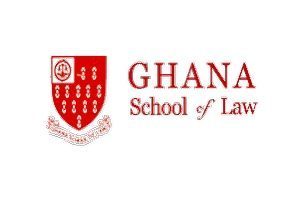Ghana Parliament recommends remarking of 2019 law exams
 Parliament on Wednesday urged the Ghana Legal Council (GLC) to commence the process of remarking the 2019 entrance examination papers for admission to the Ghana School of Law (GSL).
Parliament on Wednesday urged the Ghana Legal Council (GLC) to commence the process of remarking the 2019 entrance examination papers for admission to the Ghana School of Law (GSL).
“On the account of the controversies surrounding the results of the 2019 entrance examination for admission to the GSL, the Committee recommends to the GLC to commence the process of re-marking of the scripts , upon request and payment of reasonable fees,” a report of the Committee on Constitutional, Legal and Parliamentary Affairs, adopted by the plenary said.
Members of the House also okayed a recommendation by the Committee to the Attorney General and Minister for Justice to submit a new bill to the House to replace the Legal Profession (Amendment) Bill, 2018 to address current challenges confronting the country’s legal education system.
The recommendation followed a directive by the Speaker to the Committee, after the National Association of Law Students presented a petition to the President of Ghana, and copied to the Speaker of Parliament, for consideration and report to the House.
The Committee, according to the report met representatives of the GLC and the Independent Examinations Committee, and also the National Association of Law Students.
In the petition, the Association recounted that prior to the 2012, Bachelor of Law (LLb) graduates transitioned seamlessly into the professional legal training.
The noted that whereas the number of law faculties kept increasing with attendant increase in the number of LLB graduates, the GLC kept the GSL as the sole institution administering the professional legal training in the country.
Accordingly, the number of LLB holders seeking admission to the GSL increased astronomically, without much being done to create corresponding access to professional legal training.
The Association alleged that the GLC instituted the entrance examination in the admission process as filtration mechanism to deal with the failure on their part to provide corresponding facilities to absorb the increasing numbers.
In that regard, they rejected the justification that the entrance examination served as quality filtering system, as it did not lend itself to hard work or merit, but offer little time for students to prepare adequately for the large number of subjects involved.
The students were of the view that mass failures at the examination did not reflect the actual performance of students, but rather showed a systemic failure within the country’s legal education system.
“They further proposed that, upon completion, students must be made to write Bar Examinations, which may be conducted at least four times within a year,” the report said, adding that, “marking schemes and examiners’ reports must be published alongside the results to serve as a guide to law lecturers and students.”
The Committee expressed grave concern over the recent mass failure in law examinations conducted by the IEC on behalf of the GLC, and recalled that a similar abysmal performance in 2017 and 2018 professional law examinations that recorded 17.5 per cent and 12.2 per cent of law students who respectively passed, and attributed the poor performance to systemic challenges, which warrant massive reforms in the country’s legal education architecture.
According to the report, the GLC said most of the students failed the 2019 entrance examination due to poor grammar and comprehension, complete deviation from questions, inadequate preparation by students and poor teaching and learning at the various law faculties.
The students of Law rejected the outcome of the examination and insisted that 93 per cent of the failure rate did not represent their actual performance at the examination.
There were also issues of the determination of the pass mark, and discussed the impact of the abolition of the oral interview.
The Committee recommended to the GLC to consider publishing recent marking schemes and examiners reports on the website of the GSL and deposit copies at the GSL library.
It also recommended the withdrawal of the Legal Profession Bill (Amendment) Bill, 2018 as it was overtaken by events and replaced with a new one that would take account of all the challenges confronting legal education.
Source: GNA
